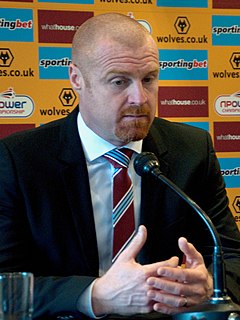A Quote by William Morris
There is no single policy to which one can point and say - this built the Morris business. I should think I must have made not less than one thousand decisions in each of the last ten years. The success of a business is the result of the proportion of right decisions by the executive in charge.
Related Quotes
A hundred years ago-even 20 or 30 years ago-it was possible, if not always easy, to close major business by calling on and satisfying a key decision-maker. Today, every piece of business entails multiple decisions, and those decisions are virtually never made by the same person. Not only do you have to contend with multiple decisions, but the people who make those decisions may not even work in the same place.
In their zeal for particular kinds of decisions to be made, those with the vision of the anointed seldom consider the nature of the: process: by which decisions are made. Often what they propose amounts to third-party decision making by people who pay no cost for being wrong-surely one of the least promising ways of reaching decisions satisfactory to those who must live with the consequences.
Indecision is debilitating; it feeds upon itself; it is, one might almost say, habit-forming. Not only that, but it is contagious; it transmits itself to others. . . . Business is dependent upon action. It cannot go forward by hesitation. Those in executive positions must fortify themselves with facts and accept responsibility for decisions based upon them. Often greater risk is involved in postponement than in making a wrong decision.
Most people define "street smarts" as some innate ability to make savvy decisions, or one that has developed as a result of a person being confronted with very challenging circumstances in the past. I think another common term that is used is one who has amazing "business acumen." But, whatever we call it, it is always associated with some mysterious ability, only a few possess, that allow them to make better decisions than the rest of us.
To become a chess grandmaster also seems to take about ten years. (Only the legendary Bobby Fisher got to that elite level in less than that amount of time: it took him nine years.) And what's ten years? Well, it's roughly how long it takes to put in ten thousand hours of hard practice. Ten thousand hours is the magic number of greatness.







































